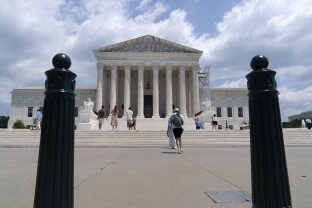It may have seemed like a minor ruling, but the Supreme Court’s decision on Thursday — in a case about whether individuals can dispute civil penalties in a federal court rather than having an in-house legal proceeding — is likely to have massive ripple effects at federal agencies.
It could also have a big impact on taxpayers.
The case, SEC v. Jarkesy, dealt with a hedge fund manager, George Jarkesy, who was fined by the Securities and Exchange Commission for misleading investors. Jarkesy was ordered to pay a civil penalty of about $300,000.
